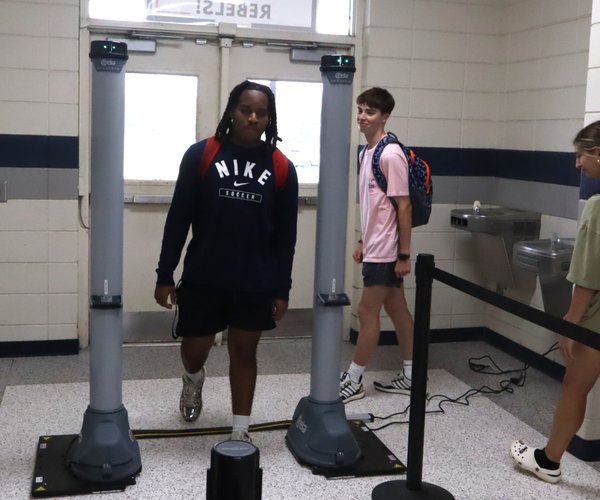RINCON — The mountain of Kleenex needed to get through the 2019-20 flu season might reach Everest proportions.
Dr. Anthony Fauci, director of the National Institute of Allergies and Infection Diseases, told CNN recently that the current flu season is on track to be one of the worst in years.
“The initial indicators indicate that this is not going to be a good season,” Fauci said. “This is going to be a bad season.”
According to CDC data released Friday, at least 6.4 million Americans have caught the flu and 55,000 of them have been hospitalized. Nearly 3,000, including 27 children, have died from the disease, a contagious illness caused by influenza viruses that infect the nose, throat and occasionally the lungs.
Thirty-four states, including Georgia, and Puerto Rico are experiencing “high flu activity.” The Georgia Department of Public Health has confirmed more than 400 hospitalizations and seven deaths because of the flu.
The CDC stresses that it’s not too late to get a flu vaccine. According to forecasting, the CDC estimates there’s a 30 percent chance that flu season will peak in January and a 25 percent chance it will reach its zenith in February.
The predominant flu virus circulating is a B/Victoria strain that doesn’t usually pop up until the end of the flu season, in early spring. B viruses can infect anyone, but they generally strike children and young adults more than the elderly. Vaccination is the best prevention against the flu for all ages, and the B/Victoria strain is included in this season’s vaccine.
According to the CDC, nearly 171 doses of flu vaccine have been distributed.
“The single most effective way to prevent the flu is the flu vaccine. Every healthy individual over the age of six months should get a flu vaccine,” said Kathleen E. Toomey, M.D., M.P.H., DPH commissioner. “Even if the vaccine is not a perfect match, it can still help lessen the severity and length of flu symptoms if you do get sick.”
Symptoms of flu include fever, cough, sore throat, runny or stuffy nose, headache, chills and fatigue. One of the most pronounced flu symptoms is an overall feeling of achiness and malaise that comes on quickly.
There are other things you can do to help protect against flu, including:
— Frequent and thorough hand-washing. Alcohol based gels are the next best thing if there is no access to soap and water.
— Covering your nose and mouth when coughing and sneezing to help prevent the spread of the flu. Use a tissue or cough or sneeze into the crook of your elbow or arm.
— Avoid touching your face as flu germs can get into the body through mucus membranes of the nose, mouth and eyes.
If you are sick, stay home from school or work. Flu sufferers should be free of fever without the use of a fever reducer for at least 24 hours before returning to school or work.
If you do get sick and think you may have the flu, contact your health care provider right away. There are medications that can be used to treat flu but they are most effective when taken within 48 hours of the onset of flu symptoms.
EDITOR'S NOTE: The Georgia Department of Public Health provided the bulk of the information in this report.








